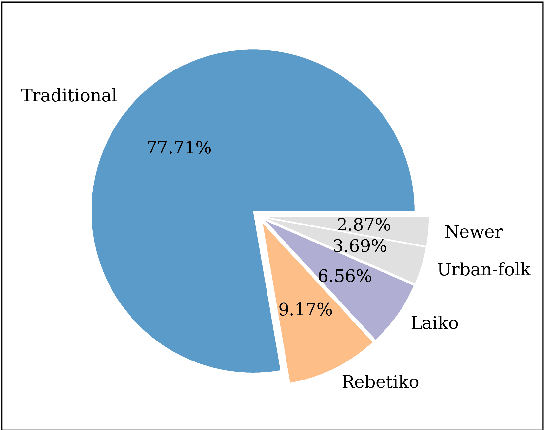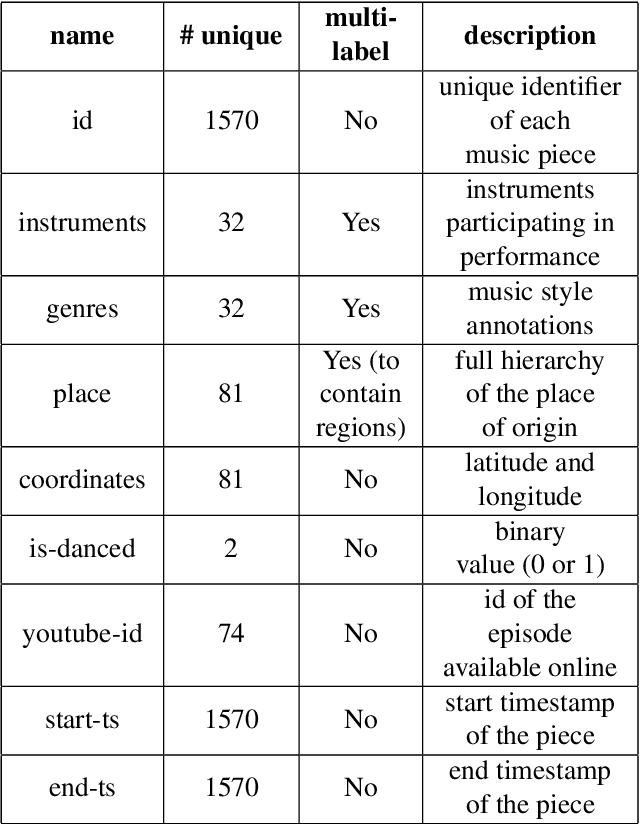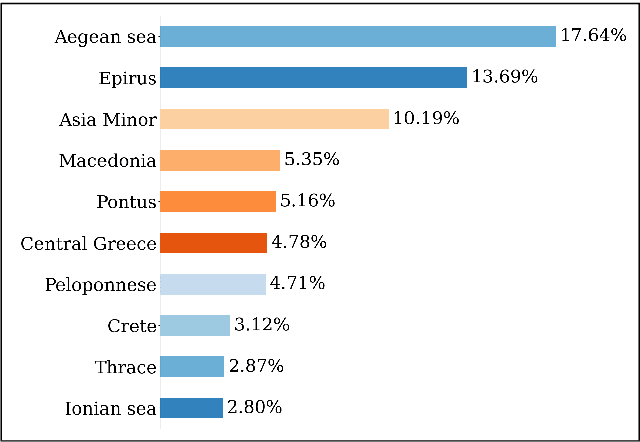A Dataset for Greek Traditional and Folk Music: Lyra
Paper and Code
Nov 21, 2022



Studying under-represented music traditions under the MIR scope is crucial, not only for developing novel analysis tools, but also for unveiling musical functions that might prove useful in studying world musics. This paper presents a dataset for Greek Traditional and Folk music that includes 1570 pieces, summing in around 80 hours of data. The dataset incorporates YouTube timestamped links for retrieving audio and video, along with rich metadata information with regards to instrumentation, geography and genre, among others. The content has been collected from a Greek documentary series that is available online, where academics present music traditions of Greece with live music and dance performance during the show, along with discussions about social, cultural and musicological aspects of the presented music. Therefore, this procedure has resulted in a significant wealth of descriptions regarding a variety of aspects, such as musical genre, places of origin and musical instruments. In addition, the audio recordings were performed under strict production-level specifications, in terms of recording equipment, leading to very clean and homogeneous audio content. In this work, apart from presenting the dataset in detail, we propose a baseline deep-learning classification approach to recognize the involved musicological attributes. The dataset, the baseline classification methods and the models are provided in public repositories. Future directions for further refining the dataset are also discussed.
 Add to Chrome
Add to Chrome Add to Firefox
Add to Firefox Add to Edge
Add to Edge